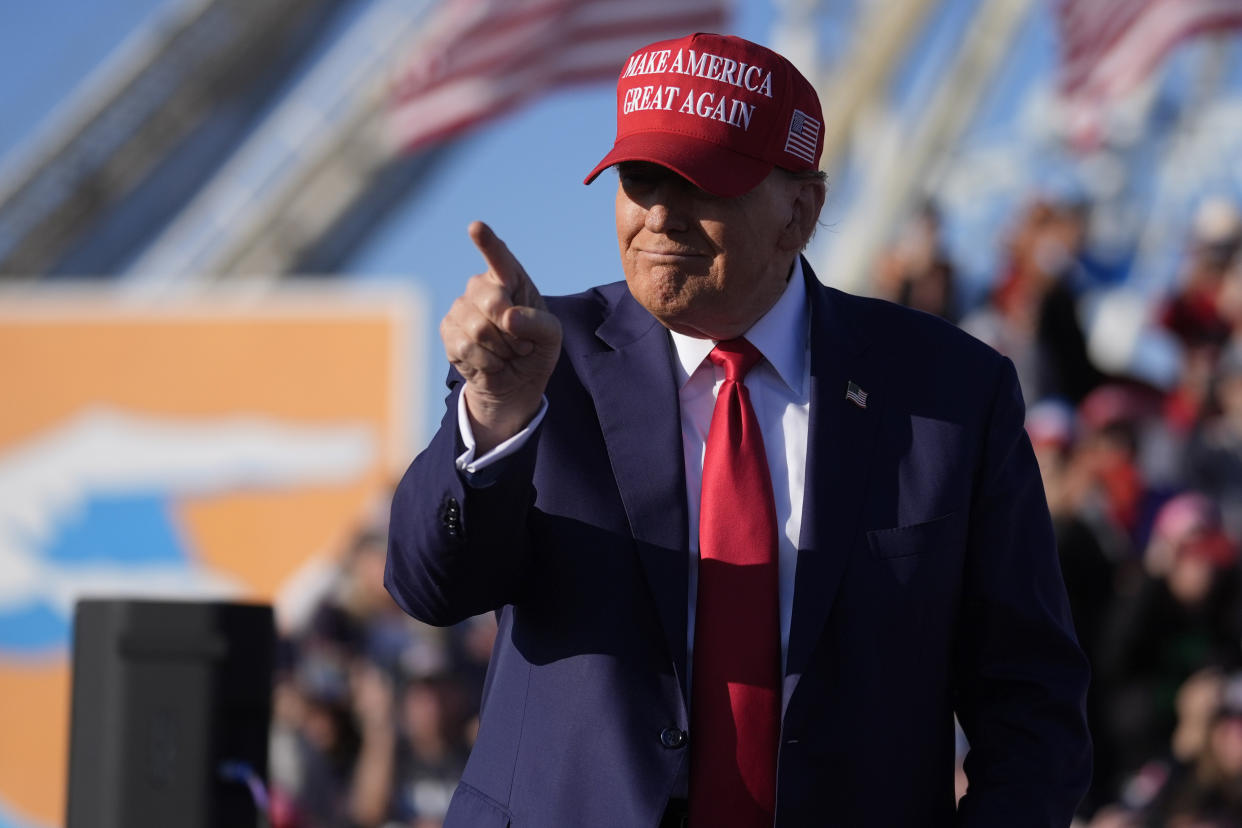Takeaways from New Jersey's primary elections

New Jersey's statewide primaries Tuesday settled the race for Bob Menendez's Senate seat in November while offering the first test of the state's county party influence following a historic court decision restructuring ballots. It didn't yield any big surprises, though, and incumbents of both parties reigned.
Donald Trump won the Republican nomination for president while Joe Biden secured the Democratic nomination.
Here are takeaways from primary night:
The “county line” had a good night
New Jersey’s unique and controversial ballot design got scrapped for the Democratic primary, but the candidates backed by county parties prevailed anyway.
The line groups candidates endorsed by county parties together on ballots, giving them a large advantage over others running for office. For Democrats, that system got upended when a federal judge said the party should use office block ballots like every other state in the country (Republicans were not a party to the lawsuit).
That raised questions of whether county parties would have as much power without the line. Tuesday night offered an initial answer: they still have influence. In statewide races, party-backed candidates won key races — from Republican Curtis Bashaw for Senate to Democrats Rob Menendez, Bill Pascrell Jr. and Herb Conaway for the House.
However, the timing of the judge’s decision, after the filing deadline, makes it impossible to tell if more qualified candidates would have run against the party organization had they known there wouldn't be a line this year.
The question now is whether a lawsuit to permanently eliminate the line will move forward and move New Jersey to office block ballots for the 2025 governor's race.
Andy Kim romps
Andy Kim, the mild-mannered three-term representative, beat Democrats in court and is now the party’s standard-bearer.
Kim easily dispatched opponents Patricia Campos-Medina and Lawrence Hamm Tuesday to become the Democratic nominee for Senate to replace the indicted Sen. Bob Menendez, who has filed to run against him in November as an independent.
Prior to Menendez’s indictment, few if anyone saw this coming. Kim was respected and had won tough elections in a South Jersey district that voted for Trump, but he was not likely to have been at the top of anyone’s list for statewide Democratic contenders.
Now, not only is he the heavy favorite to become the next senator from New Jersey, but he blew up the county line in the process — at least for Democrats this year.
Kim will face Cape May hotelier Curtis Bashaw in the general election. It remains to be seen whether Menendez, who said he will run for reelection as an “independent Democrat” if he’s exonerated, will ultimately be on the ballot. Menendez, whose trial is ongoing, filed on Monday to run as an independent, but he has until mid-August to withdraw his candidacy. Even with Menendez threatening to play spoiler, Kim is heavily favored to win in a state that hasn’t elected a Republican senator since 1972.
Donald Trump loses to the line
Donald Trump may have won New Jersey’s Republican presidential primary unopposed, but his chosen candidate for Senate did not.
During a rally in Wildwood last month — in the home county of GOP Senate candidate Curtis Bashaw — Trump endorsed Bashaw’s main rival for the nomination, Mendham Borough Mayor Christine Serrano Glassner.
“I’m giving her my complete and total endorsement,” Trump said at the May 11 rally, calling Bashaw a “Christie person,” referring to former Gov. Chris Christie.
Serrano Glassner ran as a Trump loyalist, even saying she would not have voted to certify the results of the 2020 election that he lost. She is also married to Trump adviser Michael Glassner.
But Bashaw, a more moderate and openly gay hotelier from Cape May with a history of donating to Republicans and Democrats — but never Donald Trump — had his own powerful endorsements: From the bulk of New Jersey’s county committees. That gave him favorable ballot placement with the county line, which Republicans retained this year even though a lawsuit tossed it for the Democratic primary. Bashaw also out-raised Glassner 3-1.
In the end, the Trump endorsement wasn’t enough to carry it for Glassner. With 62 percent of precincts reporting, Bashaw defeated her 48 percent to 37 percent, according to the Associate Press.
While that may look like a reputational blow to Trump, it might be good news for New Jersey Republicans. Bashaw, who has said he will support for Trump but has no history of donating to him and has sought not to tie himself too closely with him, may be a stronger general election candidate for Republicans in this blue state, even if he’s still a longshot.
Gaza doesn’t have a huge effect on Democratic primary
The Palestine-Israel conflict has inflamed the left, but its effect on New Jersey’s Democratic primary election was muted.
With 67 percent reporting, just 8 percent of voters chose the “uncommitted” slate of delegates that Democratic Socialist activists had managed to get on the ballot in most counties with the slogan “Justice for Palestine, Permanent Ceasefire Now.”
And in the 9th District, which has a large Arab-American population — including Little Ramallah in Paterson — Rep. Bill Pascrell Jr. easily defeated Prospect Park Mayor Mohamed T. Khairullah, who challenged Pascrell largely on his support for Israel and his early reluctance to call for a cease-fire.


